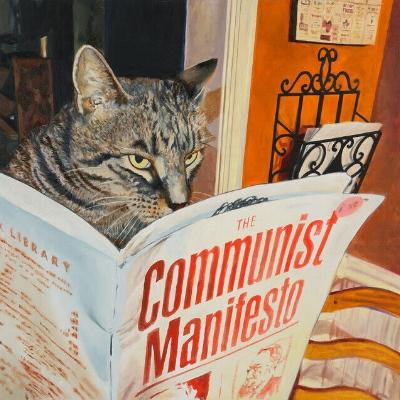This is what I hate about people who are vehemently anti-communist. They can look at a picture displaying the atrocities of fascism and then, instead of demonizing the horrific acts of fascism, decide to change the subject to talk about how evil communism is.
Anti-communist looking at picture of the Holocaust: “Man, I sure do hate communism.”





@sharkfucker420
I blocked mistahbenny. There’s no point talking to them. They’ve already made up their mind on the matter.